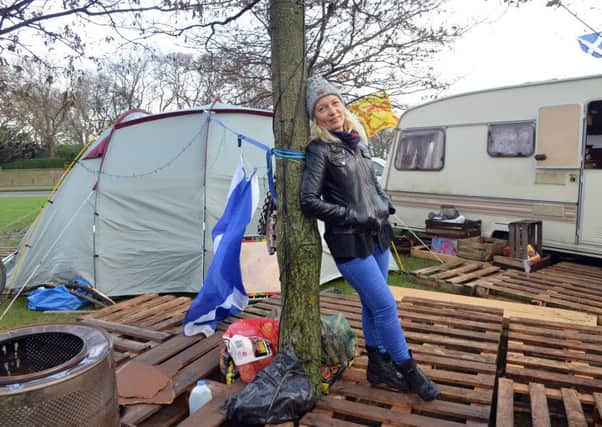'˜Independence campers' in court over eviction bid


Members of the Sovereign Indigenous Peoples of Scotland told Lord Turnbull did not have the legal right to evict them. They told the Court of Session the Scottish Parliament’s Corporate Body held power on behalf of the people of Scotland.
They argued that the Corporate Body could not have them evicted because it would contravene the 1707 Treaty of Union. The campaigners claim that the treaty of union only allows laws to be passed which are beneficial to the people of Scotland.
Advertisement
Hide AdAdvertisement
Hide AdThe campers say that to evict them would go against the interests of the Scottish people. They claimed the grounds in which they are camped belong to the Scottish public.
They say the public land was violated. They say this was because Murray Tosh, the Parliament’s former Presiding officer, allegedly purchased the ground illegally when Holyrood first opened.
One campaigner told the court that he wanted to ask Mr Tosh about his “ownership” but was unable to find him.
Independence campaigner Patricia Polley told the court: “Holyrood is common land. It was brought and paid for by the people of Scotland.”
Ms Polley was addressing the court as 110 supporters of the camp were present in court to hear her arguments. She spoke on what would have been the first day of an independent Scotland. Many supporters came to court dressed in kilts. Some wore Saltire flags on their backs. One tried to bring a bongo drum into court but was prevented from doing so by security staff.
The campers say their “vigil” outside the Scottish Parliament will end when Scotland becomes independent.
Lord Turnbull asked campaigners for their definition of what constituted an indigenous Scottish person. The campaigners used the UN Declaration on Indigenous Peoples as part of the reason why they should not be evicted.
When Lord Turnbull asked the question in court, several people sitting in the public galleries raised their hands and replied: “I am indigenous.”
Advertisement
Hide AdAdvertisement
Hide AdA man called “Mr Gemmill” told Lord Turnbull Scottish and English law were different. Lord Turnbull replied: “I think I know that.”
Mr Gemmill compared the Scottish Parliament’s Corporate Body to a “spoiled wean”. Physically shaking, Mr Gemmill told the court: “The Indigenous People of Scotland are exercising their right by seeking sanctuary at the independence camp.”
Lord Turnbull will issue his decision in the near future.